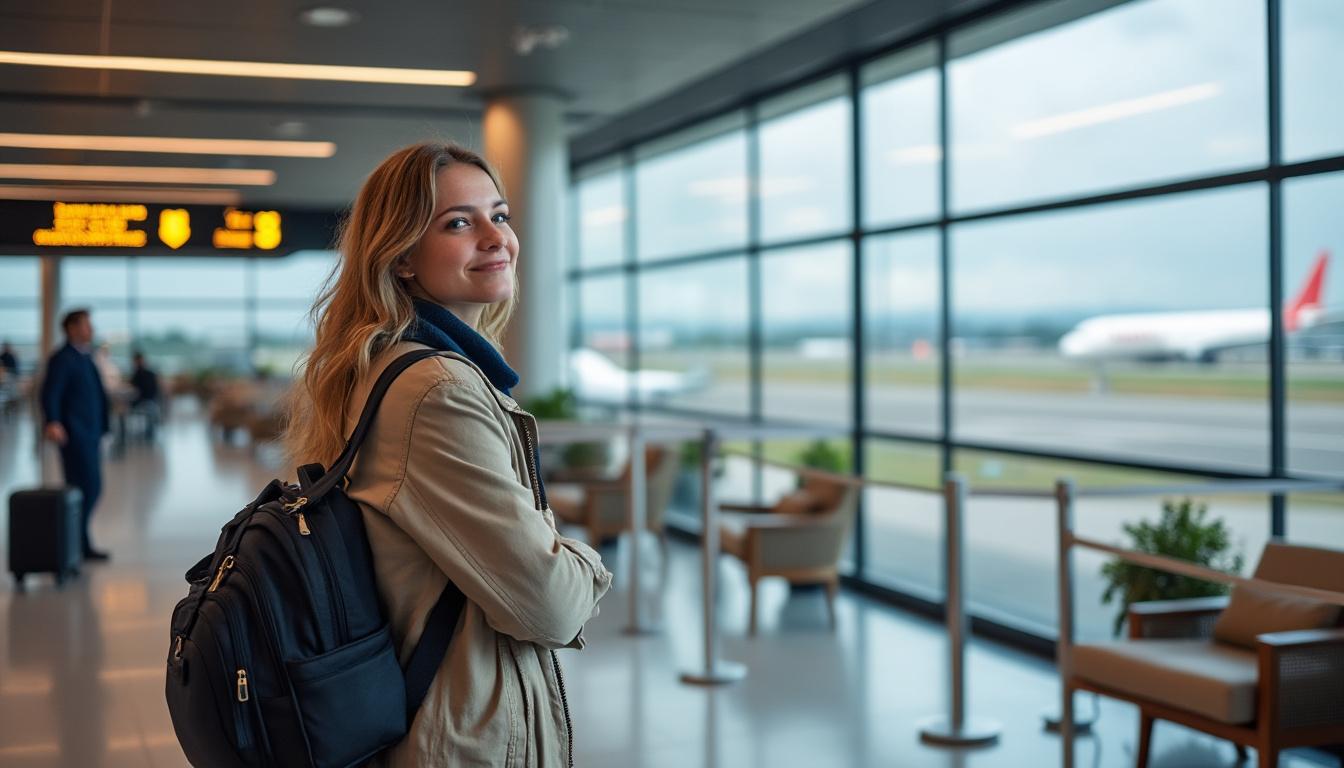Traveling by air while managing multiple sclerosis (MS) demands careful preparation and strategies tailored to individual needs. With the right approach, journeys can become more comfortable, less stressful, and even enjoyable. This guide highlights essential tips for navigating air travel with MS, emphasizing comfort, accessibility, and proactive planning that empower travelers to focus on their destination rather than the obstacles along the way.
Choosing Airlines and Flights Optimized for Multiple Sclerosis Travelers
Booking flights that minimize complications is a primary consideration for those with mobility or health challenges linked to MS. Direct flights, when available, significantly reduce the fatigue and stress associated with layovers and gate transfers. When connections are unavoidable, ample layover time allows for rest and reduces the pressure of rushing through crowded terminals.
- Select nonstop flights to avoid the demands of transferring between planes and terminals.
- Ensure sufficient layover time to accommodate slower mobility, potential delays, and the need for rest.
- Consult airlines about their accessibility services and wheelchair assistance programs before booking.
- Consider travel insurance that covers cancellation or medical contingencies related to MS symptoms.
Working directly with airlines can reveal options for priority boarding, pre-boarding, and the availability of comfort products such as special seating or onboard assistance. Additionally, many carriers provide tailored meal options upon request, supporting dietary preferences or restrictions linked to MS management.
| Airline Service | Accessibility Feature | Benefit for MS Travelers |
|---|---|---|
| Wheelchair assistance | Escort from check-in to gate | Reduces physical exertion and stress navigating airports |
| Preboarding | Board before general passengers | Allows settling in without rush or crowding |
| Special meal requests | Custom dietary options | Supports digestive health and symptom management |
| Priority seating | Locations with extra space or convenience | Enhances comfort during flight |
Making the Most of Airport Lounges and Accessibility Services
Airport lounges provide quiet, comfortable spaces away from busy terminals and noise. For MS travelers, these lounges are valuable for resting, hydrating, and recharging devices. Many lounges offer dedicated staff who understand accessibility needs and can facilitate smooth gate transfers.
- Use airport lounges during layovers to avoid fatigue and stress.
- Request accessibility services in advance, including wheelchair assistance.
- Leverage travel apps to track gates, flights, and airport amenities suited to your needs.
- Keep personal care items handy for quick freshening up.
| Service | Practical Tip | Expected Benefit |
|---|---|---|
| Wheelchair assistance | Arrange before travel | Ensures timely escort through security and to gates |
| Airport lounges access | Book lounge entry or check complimentary eligibility | Provides a calm environment for rest and hydration |
| Travel apps | Download airline and airport apps | Keeps traveler informed and reduces anxiety |
Managing Mobility Aids and Medical Supplies for Air Travel with MS
Mobility support is fundamental to a seamless journey. Wheelchairs and other mobility aids alleviate physical demand and enhance independence. Ensuring these aids are compatible with airline policies and properly packed is vital. Additionally, organizing essential medical supplies in carry-on luggage avoids complications if checked baggage is delayed or lost.
- Confirm wheelchair assistance availability with airlines.
- Label mobility aids clearly and carry documentation if required.
- Pack medical supplies and personal care items in carry-on bags.
- Include spare medication and hydration tools to prepare for unexpected delays.
| Item | Travel Consideration | Advice |
|---|---|---|
| Wheelchair | Airline regulations and storage | Notify airline ahead; use protective covers |
| Medical supplies | Carry-on accessibility | Keep medications and emergency kits close |
| Mobility aids (canes, walkers) | Check-in and gate assistance | Bring documentation; store securely when not used |
| Personal care items | Hygiene and comfort | Pack in easy-to-reach locations |
Nutrition and Comfort Strategies During Flights
Digestive unpredictability can challenge travelers with MS. Sticking to familiar foods before and during flights helps prevent discomfort. Bringing preferred snacks provides control over diet, especially as airport food courts may trigger symptoms. Comfort products, such as seat cushions or cooling towels, can also alleviate fatigue and temperature sensitivity.
- Eat known, well-tolerated foods to avoid digestive upset.
- Bring personal snacks to maintain energy and control nutrition.
- Use comfort products to manage temperature sensitivity and physical discomfort.
- Hydrate before and during flight to avoid dehydration and fatigue.
| Strategy | Purpose | Example |
|---|---|---|
| Familiar foods | Reduce risk of digestive issues | Bringing homemade meals or favorite snacks |
| Comfort products | Physical ease and temperature regulation | Cooling towels, seat cushions |
| Hydration | Prevent fatigue and maintain bodily functions | Water bottles, electrolyte drinks |
Using Technology and Support Networks to Enhance Travel with MS
Modern travel apps and digital resources tailor the journey to individual needs. These tools can track flight status, provide airport maps highlighting accessibility services, and offer reminders for medication schedules. Building a support network of friends, family, and healthcare providers ensures assistance and reassurance throughout the trip.
- Download travel apps with accessibility information and flight updates.
- Coordinate with healthcare providers for current health advice before and during travel.
- Inform travel companions or assistance personnel about special needs.
- Keep emergency contact details and medical history accessible at all times.
| Tool or Network | Benefit | Practical Tip |
|---|---|---|
| Travel apps | Real-time flight and airport assistance | Schedule medication reminders and route navigation |
| Support network | Emotional and practical assistance | Share itinerary and contact info before trips |
| Healthcare coordination | Ensure medication and emergency readiness | Consult doctor pre-trip; carry prescription list |
Frequently Asked Questions About Air Travel with Multiple Sclerosis
- Q: How can I arrange wheelchair assistance at the airport?
A: Contact the airline at least 48 hours before your flight to request wheelchair services. Confirm your needs upon check-in, ensuring staff are aware of your requirements. - Q: What should I pack in my carry-on for MS management?
A: Include all essential medications, hydration supplies, personal care items, and at least one change of clothes for emergencies. - Q: Is travel insurance necessary for people with MS?
A: Yes, travel insurance offering coverage for trip cancellations or health emergencies related to MS symptoms is highly recommended. - Q: How do I handle dietary needs during air travel?
A: Pre-order special meals with airlines when possible, or bring familiar snacks to maintain digestive stability. - Q: What if my mobility aid is delayed or damaged during travel?
A: Always label and protect your mobility aids, carry documentation and notify airlines in advance. Pack backup aids or consult airport services for temporary solutions.


